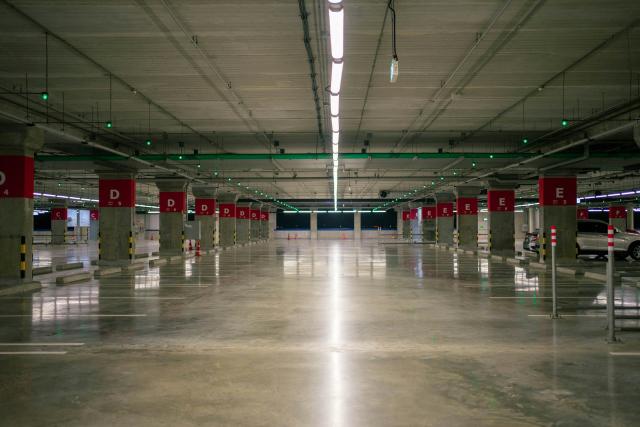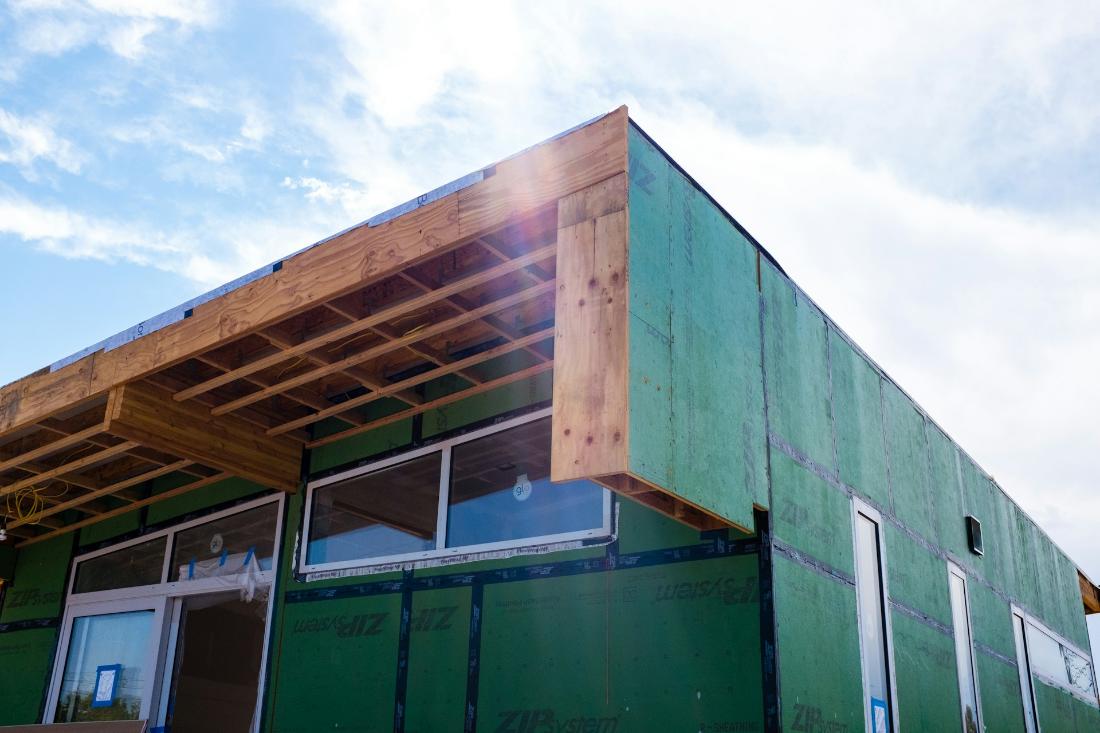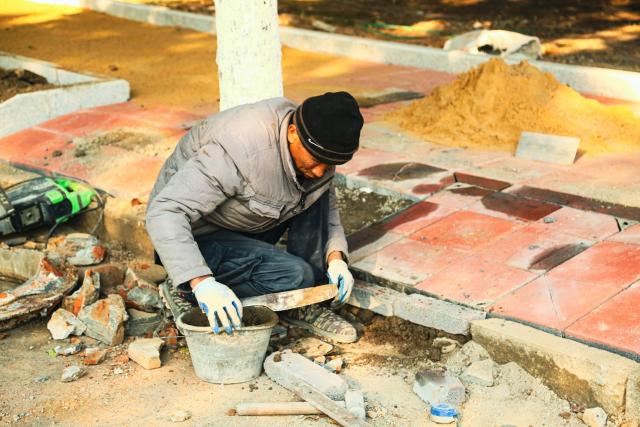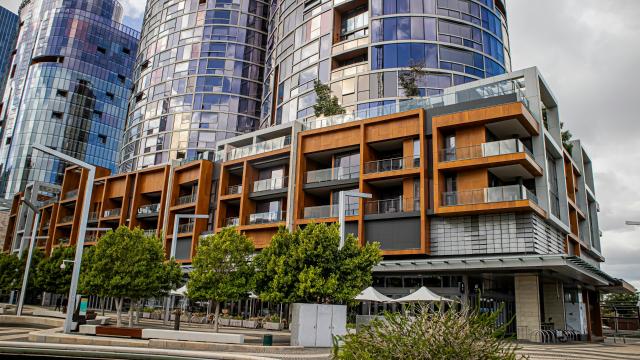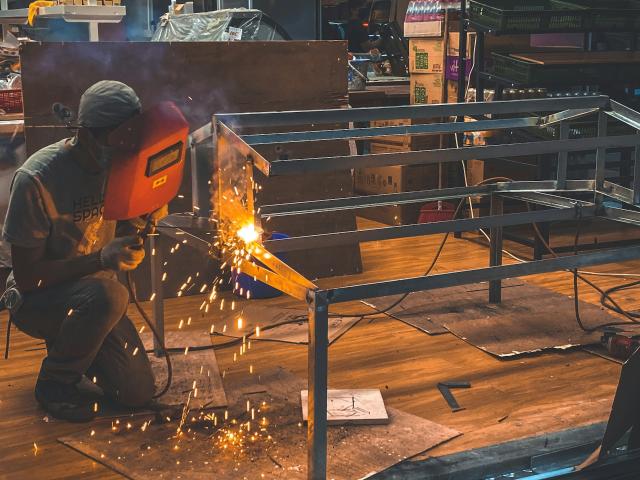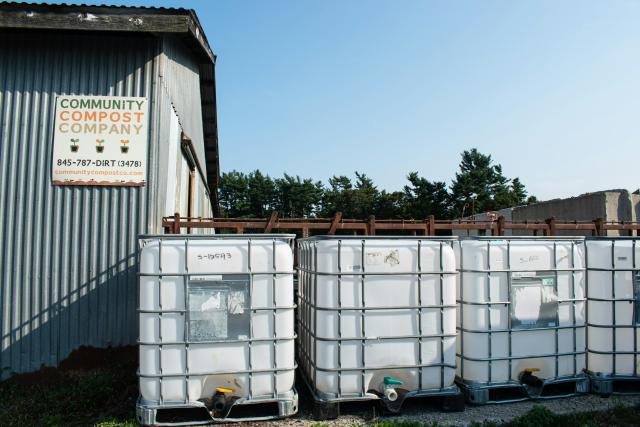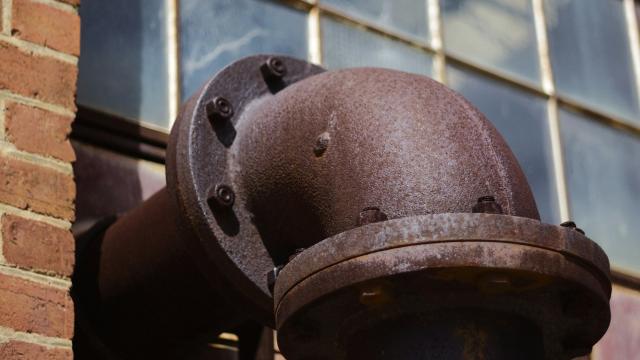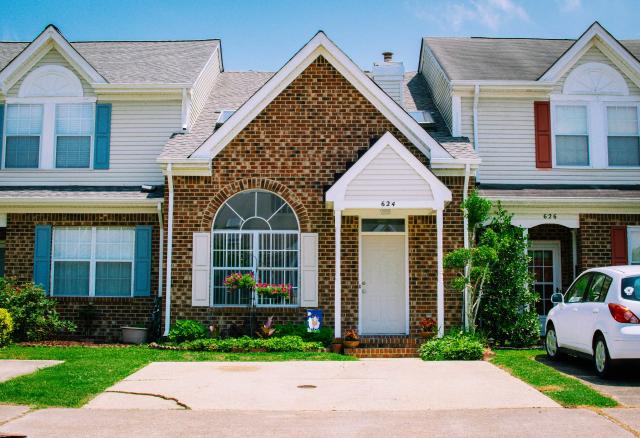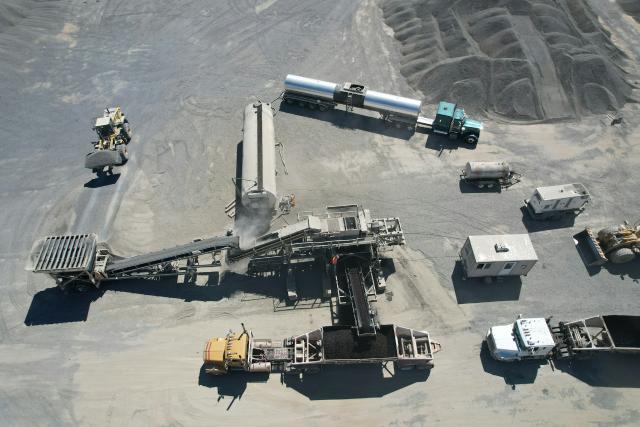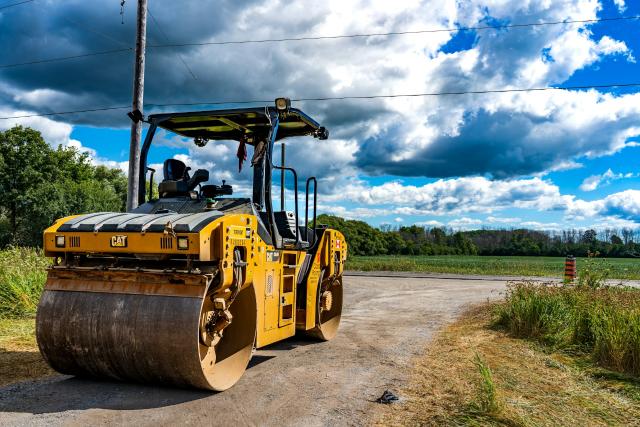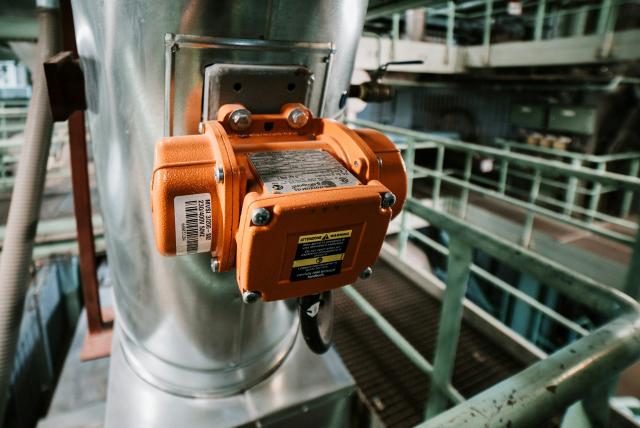Popular Ideas and Designs
Is your roof leaking during heavy rain? Are your walls suffering from condensation and mold growth? Do you wish for a cooler, more energy-efficient home or building? If so, waterproof and climate coatings could be the perfect solution for you. Discover how our cutting-edge cool roof coatings can enhance your roof's durability, reduce energy costs, and boost indoor comfort.
Unleash the Power of Waterproof Coating
Leaking roofs can cause significant damage to your property and belongings. Waterproof coatings act as a robust shield, preventing water from seeping through cracks and vulnerable areas. TL Terang Sdn Bhd, a top roof coating expert in Malaysia, provides premium waterproofing solutions ideal for roofs, balconies, basements, and more. Their experienced team will assess your needs and recommend the best coating materials, ensuring long-lasting protection against water damage.In the bustling heart of Kuala Lumpur or the thriving commercial hubs of Penang and Johor Bahru, the true test of a development’s functionality often begins not at its grand lobby, but in the dimmer, pragmatic world below or beside it: the car park. This space, frequently an afterthought in the public imagination, is in fact a complex feat of civil engineering, user experience design, and long-term asset management. It is the first and last interaction thousands have with a shopping mall, office tower, or residential condo daily. The quality of this experience—marked by safety, efficiency, and durability—is a direct reflection of the expertise behind its creation. This is the domain of the specialised car park contractor in Malaysia. Far more than a civil engineering firm, this contractor is a master of traffic flow, a guardian of structural longevity, and a technological integrator who understands that a well-built car park is not a cost centre, but a critical revenue-generating asset and a powerful contributor to a development’s overall reputation.
The journey of building a modern car park in Malaysia begins with a fundamental shift in perspective. No longer just a necessary slab of concrete to house vehicles, it is now conceived as a multi-layered system with competing demands. The contractor must balance the relentless structural load of hundreds of tonnes of vehicles with the need for long, clear spans to allow for flexible parking layouts. They must design for the brutal chemical assault from oil drips, tyre rubber, and road salts, all under the constant stress of Malaysia’s humid, tropical climate which accelerates material degradation. Simultaneously, they must engineer for human psychology—creating clear sightlines, intuitive wayfinding, and a sense of security that makes users feel safe, not anxious. A proficient contractor approaches the project holistically, seeing it as an integrated puzzle where civil, mechanical, electrical, and architectural disciplines must interlock perfectly from the very first blueprint.
The structural design and construction phase is where the contractor’s core engineering prowess is paramount. The choice of system—whether a conventional reinforced concrete flat slab, a more efficient post-tensioned slab that allows for thinner decks and longer spans, or a precast concrete system for faster construction—is a critical early decision. Each has implications for cost, construction time, and final column spacing, which directly impacts the number of parking bays achievable. The contractor must execute this with millimetric precision. The slab’s camber and gradient, for instance, are not arbitrary. They must be calculated to provide positive drainage towards designated outlets, preventing the dangerous and unsightly pooling of water during heavy rains, a non-negotiable feature in the monsoon climate. The durability of the concrete itself is a science, often involving specially formulated mixes with additives to reduce permeability and increase resistance to chemical attack, ensuring the structure withstands decades of daily wear.
The journey of building a modern car park in Malaysia begins with a fundamental shift in perspective. No longer just a necessary slab of concrete to house vehicles, it is now conceived as a multi-layered system with competing demands. The contractor must balance the relentless structural load of hundreds of tonnes of vehicles with the need for long, clear spans to allow for flexible parking layouts. They must design for the brutal chemical assault from oil drips, tyre rubber, and road salts, all under the constant stress of Malaysia’s humid, tropical climate which accelerates material degradation. Simultaneously, they must engineer for human psychology—creating clear sightlines, intuitive wayfinding, and a sense of security that makes users feel safe, not anxious. A proficient contractor approaches the project holistically, seeing it as an integrated puzzle where civil, mechanical, electrical, and architectural disciplines must interlock perfectly from the very first blueprint.
The structural design and construction phase is where the contractor’s core engineering prowess is paramount. The choice of system—whether a conventional reinforced concrete flat slab, a more efficient post-tensioned slab that allows for thinner decks and longer spans, or a precast concrete system for faster construction—is a critical early decision. Each has implications for cost, construction time, and final column spacing, which directly impacts the number of parking bays achievable. The contractor must execute this with millimetric precision. The slab’s camber and gradient, for instance, are not arbitrary. They must be calculated to provide positive drainage towards designated outlets, preventing the dangerous and unsightly pooling of water during heavy rains, a non-negotiable feature in the monsoon climate. The durability of the concrete itself is a science, often involving specially formulated mixes with additives to reduce permeability and increase resistance to chemical attack, ensuring the structure withstands decades of daily wear.
There is a particular feeling of home that arrives with the first step onto a timber floor. It is a sensation of instant connection—a subtle warmth underfoot, a gentle give, a quiet, solid resonance that feels utterly different from the cool, hard echo of tile or stone. In Malaysia, where the climate often drives design towards cold, moisture-resistant surfaces, the choice of timber flooring is a profound declaration of comfort and character. It speaks to a desire for natural beauty, organic texture, and an enduring sense of sanctuary. However, installing wood in a land defined by humidity and heat is a venture that demands more than just carpentry skills. It requires the deep, nuanced expertise of a specialist timber flooring contractor. This professional is not merely a fitter of planks; they are a guardian of wood, a master of microclimates, and an artisan who understands how to make a living, breathing material thrive in a demanding environment.
The journey of a timber floor in a Malaysian home begins with a fundamental understanding of wood as a hygroscopic material. Wood breathes. It absorbs and releases moisture from the surrounding air, expanding when humidity is high and contracting when it is low. This is not a flaw; it is its nature. The true expertise of a contractor lies in working with this nature, not against it. The most critical phase of any project happens long before installation: wood acclimatisation. A professional contractor will deliver the timber to the site days or even weeks in advance. They will unwrap the bundles, stack them with spacers to allow air circulation, and let the wood settle into the precise temperature and humidity conditions of the room where it will live. Using a moisture meter, they will monitor the wood’s moisture content until it reaches equilibrium with the subfloor. Rushing this step is the cardinal sin of timber flooring; installing wood that is too dry or too damp for its environment guarantees problems later—gaps, cupping, or buckling as the wood seeks its balance. This patient, scientific approach is the non-negotiable foundation of a successful, stable floor.
Equally crucial is the preparation of the subfloor, the hidden stage upon which the drama of the timber floor will play out. A contractor treats this stage with the gravity of a surgeon preparing an operating theatre. The subfloor, whether concrete or existing timber, must be bone-dry, perfectly level, and impeccably clean. In Malaysia, moisture testing of concrete slabs is paramount. Contractors use plastic sheet tests or electronic moisture meters to ensure the slab’s moisture emission is within acceptable limits for wood installation. Any excess moisture must be addressed with specialised sealants or moisture barriers before proceeding. The subfloor is then levelled using self-levelling compounds to eliminate any dips or rises greater than a few millimetres over a two-metre span. A floor laid over an uneven subfloor will telegraph every imperfection, creating hollow spots, squeaks, and undue stress on the planks. This meticulous, unseen work is what separates a professional installation from one destined for callbacks and complaints.
The journey of a timber floor in a Malaysian home begins with a fundamental understanding of wood as a hygroscopic material. Wood breathes. It absorbs and releases moisture from the surrounding air, expanding when humidity is high and contracting when it is low. This is not a flaw; it is its nature. The true expertise of a contractor lies in working with this nature, not against it. The most critical phase of any project happens long before installation: wood acclimatisation. A professional contractor will deliver the timber to the site days or even weeks in advance. They will unwrap the bundles, stack them with spacers to allow air circulation, and let the wood settle into the precise temperature and humidity conditions of the room where it will live. Using a moisture meter, they will monitor the wood’s moisture content until it reaches equilibrium with the subfloor. Rushing this step is the cardinal sin of timber flooring; installing wood that is too dry or too damp for its environment guarantees problems later—gaps, cupping, or buckling as the wood seeks its balance. This patient, scientific approach is the non-negotiable foundation of a successful, stable floor.
Equally crucial is the preparation of the subfloor, the hidden stage upon which the drama of the timber floor will play out. A contractor treats this stage with the gravity of a surgeon preparing an operating theatre. The subfloor, whether concrete or existing timber, must be bone-dry, perfectly level, and impeccably clean. In Malaysia, moisture testing of concrete slabs is paramount. Contractors use plastic sheet tests or electronic moisture meters to ensure the slab’s moisture emission is within acceptable limits for wood installation. Any excess moisture must be addressed with specialised sealants or moisture barriers before proceeding. The subfloor is then levelled using self-levelling compounds to eliminate any dips or rises greater than a few millimetres over a two-metre span. A floor laid over an uneven subfloor will telegraph every imperfection, creating hollow spots, squeaks, and undue stress on the planks. This meticulous, unseen work is what separates a professional installation from one destined for callbacks and complaints.
The iconic image of construction in Malaysia—the cacophony of jackhammers, the clouds of dust, the symphony of shouted instructions over roaring machinery—is being quietly, but irrevocably, redesigned. A new breed of contractor is emerging, one who understands that in an era of complex projects, skilled labour shortages, and urgent sustainability goals, the old ways are no longer sufficient. These are the contractors with innovation embedded in their operational DNA. They are not merely adopters of new tools; they are holistic re-imaginers of the building process itself. They leverage technology not as a gimmick, but as a core strategy to enhance precision, safety, and collaboration, while fundamentally rethinking their approach to materials, waste, and environmental impact. To be an innovative contractor in Malaysia today is to be a master of integration, blending the time-tested wisdom of construction with the transformative power of digital and industrial innovation to build a smarter, greener, and more resilient future.
At the heart of this transformation is the digital thread that now runs through the entire project lifecycle, beginning with Building Information Modeling (BIM). For the innovative contractor, BIM is far more than a sophisticated 3D drawing tool. It is a dynamic, data-rich collaboration platform. They use it to create a digital twin of the project before the first foundation is poured. This allows for advanced clash detection, where potential conflicts between structural beams, ductwork, and plumbing are identified and resolved virtually, preventing costly and time-consuming rework on-site. BIM models enable precise quantity take-offs, leading to accurate material ordering that minimises waste. They are used to plan construction sequences with surgical precision, simulating logistics and crane movements. On-site, foremen and workers access these models on tablets, viewing up-to-date plans and specifications, which reduces errors and improves communication. This digital backbone transforms the construction process from a linear, often disjointed series of tasks into a synchronised, data-driven orchestra, where every stakeholder works from a single source of truth.
This digital planning seamlessly transitions into the physical realm through the strategic adoption of Industrialised Building Systems (IBS). Innovation here is about shifting value from the chaotic construction site to the controlled factory environment. An innovative contractor partners with or operates prefabrication facilities where building components—wall panels, bathroom pods, mechanical duct assemblies, even entire room modules—are manufactured with machine precision. These components are then transported to site for rapid assembly, like a sophisticated kit of parts. The benefits are profound. Factory conditions guarantee superior quality control, free from weather disruptions. On-site construction time can be slashed by 30-50%, reducing financing costs and enabling faster project delivery. There is a dramatic reduction in construction waste, noise, and dust pollution at the site, a significant consideration in dense urban areas. It also shifts the workforce demand towards skilled technicians in factories, offering more stable, safer, and technologically engaging careers, which is crucial for attracting a new generation to the industry. For the innovative contractor, IBS is not just a construction method; it is a philosophy of manufacturing for quality, efficiency, and sustainability.
At the heart of this transformation is the digital thread that now runs through the entire project lifecycle, beginning with Building Information Modeling (BIM). For the innovative contractor, BIM is far more than a sophisticated 3D drawing tool. It is a dynamic, data-rich collaboration platform. They use it to create a digital twin of the project before the first foundation is poured. This allows for advanced clash detection, where potential conflicts between structural beams, ductwork, and plumbing are identified and resolved virtually, preventing costly and time-consuming rework on-site. BIM models enable precise quantity take-offs, leading to accurate material ordering that minimises waste. They are used to plan construction sequences with surgical precision, simulating logistics and crane movements. On-site, foremen and workers access these models on tablets, viewing up-to-date plans and specifications, which reduces errors and improves communication. This digital backbone transforms the construction process from a linear, often disjointed series of tasks into a synchronised, data-driven orchestra, where every stakeholder works from a single source of truth.
This digital planning seamlessly transitions into the physical realm through the strategic adoption of Industrialised Building Systems (IBS). Innovation here is about shifting value from the chaotic construction site to the controlled factory environment. An innovative contractor partners with or operates prefabrication facilities where building components—wall panels, bathroom pods, mechanical duct assemblies, even entire room modules—are manufactured with machine precision. These components are then transported to site for rapid assembly, like a sophisticated kit of parts. The benefits are profound. Factory conditions guarantee superior quality control, free from weather disruptions. On-site construction time can be slashed by 30-50%, reducing financing costs and enabling faster project delivery. There is a dramatic reduction in construction waste, noise, and dust pollution at the site, a significant consideration in dense urban areas. It also shifts the workforce demand towards skilled technicians in factories, offering more stable, safer, and technologically engaging careers, which is crucial for attracting a new generation to the industry. For the innovative contractor, IBS is not just a construction method; it is a philosophy of manufacturing for quality, efficiency, and sustainability.
In the quiet of a Malaysian home, a new crack in the living room floor tile is more than a cosmetic flaw; it is a silent alarm. It is a tangible signal from the very foundation of your sanctuary, a whisper of movement, stress, or settlement in the structure below. From the polished marble of a corporate lobby to the terrazzo of a heritage school, cracks disrupt not just the surface but our sense of security and order. Addressing them is a task that demands far more than a tube of filler and a hopeful spirit. This is the domain of the professional floor crack repair contractor in Malaysia. This specialist is not a handyman, but a forensic structural investigator, a master of materials science, and a craftsman whose work is measured in millimetres and decades of stability. Their expertise lies in discerning the story a crack tells, prescribing the correct cure, and executing repairs that are not just skin-deep but are engineered to last in the face of the nation's unique environmental challenges.
The appearance of a floor crack is a symptom, and the first, most critical role of the contractor is that of a diagnostician. In Malaysia's dynamic environment, cracks can have a multitude of parents. The most common culprit is the soil itself. Expansive clay soils, prevalent in many areas, swell dramatically with monsoon rains and shrink during dry periods, causing cyclical heaving and settling beneath a building's foundation. This differential movement translates directly into stress cracks in the floor slab above. In older buildings, the natural curing and shrinkage of concrete over decades can cause non-structural hairline cracks. Thermal expansion and contraction of materials under the intense tropical sun, especially in large, exposed floor areas, is another frequent cause. More seriously, cracks can signal inadequate structural design, poor initial compaction of the sub-base, or even the encroachment of tree roots. A professional contractor begins not with a repair, but with a meticulous investigation. They examine the crack's pattern: is it a single, straight line or a sprawling, spider-web map? They note its width, depth, and whether it is active (still widening) or dormant. They assess the surrounding area for other signs of distress—sticking doors, cracks in walls above—and ask about the history of the property and the crack's emergence. This diagnosis is the cornerstone of an effective, permanent repair.
Armed with a diagnosis, the contractor then selects from a sophisticated arsenal of repair methodologies, each suited to a specific type and cause of cracking. For dormant, non-structural hairline cracks in concrete slabs—often mere aesthetic concerns—they employ surface sealing techniques. This involves cleaning and slightly widening the crack to form a "V" groove, then filling it with a flexible, polymer-modified cementitious grout or a colour-matched epoxy filler. The goal here is visual restoration and preventing water ingress, which could lead to further degradation or mould growth in the subfloor. For cracks that are actively moving or are structural in nature, a far more robust approach is required. Here, the gold standard is crack injection. This is a precise, technical process where ports are drilled along the length of the crack at strategic intervals. A low-viscosity, high-strength epoxy or polyurethane resin is then injected under pressure, starting from one end and moving sequentially. The resin flows into the minutest fissures, bonding the concrete back together from the inside out. For cracks caused by water seepage, hydrophilic polyurethane foam is used; it reacts with water to expand, creating a flexible, watertight seal. This method not only repairs but often strengthens the original concrete, restoring its monolithic integrity.
The appearance of a floor crack is a symptom, and the first, most critical role of the contractor is that of a diagnostician. In Malaysia's dynamic environment, cracks can have a multitude of parents. The most common culprit is the soil itself. Expansive clay soils, prevalent in many areas, swell dramatically with monsoon rains and shrink during dry periods, causing cyclical heaving and settling beneath a building's foundation. This differential movement translates directly into stress cracks in the floor slab above. In older buildings, the natural curing and shrinkage of concrete over decades can cause non-structural hairline cracks. Thermal expansion and contraction of materials under the intense tropical sun, especially in large, exposed floor areas, is another frequent cause. More seriously, cracks can signal inadequate structural design, poor initial compaction of the sub-base, or even the encroachment of tree roots. A professional contractor begins not with a repair, but with a meticulous investigation. They examine the crack's pattern: is it a single, straight line or a sprawling, spider-web map? They note its width, depth, and whether it is active (still widening) or dormant. They assess the surrounding area for other signs of distress—sticking doors, cracks in walls above—and ask about the history of the property and the crack's emergence. This diagnosis is the cornerstone of an effective, permanent repair.
Armed with a diagnosis, the contractor then selects from a sophisticated arsenal of repair methodologies, each suited to a specific type and cause of cracking. For dormant, non-structural hairline cracks in concrete slabs—often mere aesthetic concerns—they employ surface sealing techniques. This involves cleaning and slightly widening the crack to form a "V" groove, then filling it with a flexible, polymer-modified cementitious grout or a colour-matched epoxy filler. The goal here is visual restoration and preventing water ingress, which could lead to further degradation or mould growth in the subfloor. For cracks that are actively moving or are structural in nature, a far more robust approach is required. Here, the gold standard is crack injection. This is a precise, technical process where ports are drilled along the length of the crack at strategic intervals. A low-viscosity, high-strength epoxy or polyurethane resin is then injected under pressure, starting from one end and moving sequentially. The resin flows into the minutest fissures, bonding the concrete back together from the inside out. For cracks caused by water seepage, hydrophilic polyurethane foam is used; it reacts with water to expand, creating a flexible, watertight seal. This method not only repairs but often strengthens the original concrete, restoring its monolithic integrity.
The construction site has long been the most visceral symbol of a nation's progress. In Malaysia, the rhythmic pounding of pile drivers and the silhouettes of cranes against the skyline have soundtracked decades of remarkable development. Yet, beneath the familiar dust and din, the industry is undergoing a profound and necessary transformation. The traditional models of building are being challenged, re-engineered, and infused with new priorities. Today, to highlight the construction industry in Malaysia is to tell a story not just of physical growth, but of technological adoption, environmental responsibility, and a fundamental shift in how we conceive the relationship between the built environment and the people who inhabit it. This new era is defined by a powerful convergence of innovation and imperative, shaping a future where buildings are smarter, greener, and built with greater precision and purpose than ever before.
Perhaps the most significant and welcome shift is the industry's earnest embrace of sustainability and green building principles. For years, sustainability was often viewed as a niche concern or a marketing add-on. Today, it has moved to the very core of project planning and execution. This is driven by a combination of global climate commitments, rising energy costs, and a growing demand from investors, tenants, and homeowners for healthier, more efficient spaces. The Green Building Index (GBI) and other certification systems are no longer just plaques in a lobby; they are rigorous frameworks guiding design. The focus now is on holistic performance: optimizing building orientation and using high-performance glazing to reduce solar heat gain, integrating renewable energy sources like Building-Integrated Photovoltaics (BIPV) into facades and roofs, and implementing sophisticated water management systems that harvest rainwater and recycle greywater. Beyond energy and water, the spotlight is on materials. There is a growing emphasis on sourcing sustainable timber, using recycled content in concrete and steel, and selecting low-VOC (volatile organic compound) paints and finishes to ensure superior indoor air quality. This green revolution means construction is no longer just about creating a structure, but about crafting a high-performance environmental system that minimizes its footprint across its entire lifecycle, from material extraction to eventual deconstruction.
This drive for efficiency and precision is being supercharged by the rapid adoption of Industrialised Building Systems (IBS) and cutting-edge digitalization. The image of construction as a chaotic, labour-intensive site activity is giving way to one of a streamlined, factory-like process. IBS, where building components like walls, columns, and bathroom pods are manufactured off-site in controlled environments, is gaining tremendous traction. The benefits are transformative: drastically improved quality control, a significant reduction in construction waste and on-site mess, faster project timelines as wet trades are minimized, and enhanced worker safety. Digitalization is the intelligent partner to this physical prefabrication. Building Information Modeling (BIM) has evolved from a 3D drawing tool into a rich, data-centric process. It creates a digital twin of the entire project, allowing architects, engineers, contractors, and facility managers to collaborate on a single, clash-free model. This prevents costly errors, enables precise quantity take-offs, and allows for advanced simulations of energy performance and structural behaviour. Furthermore, the use of drones for site surveying and progress monitoring, AI for project risk analysis, and Internet of Things (IoT) sensors for real-time monitoring of concrete curing or structural health is becoming commonplace. This digital thread, running from initial design through to facility management, is making construction more predictable, manageable, and efficient.
Perhaps the most significant and welcome shift is the industry's earnest embrace of sustainability and green building principles. For years, sustainability was often viewed as a niche concern or a marketing add-on. Today, it has moved to the very core of project planning and execution. This is driven by a combination of global climate commitments, rising energy costs, and a growing demand from investors, tenants, and homeowners for healthier, more efficient spaces. The Green Building Index (GBI) and other certification systems are no longer just plaques in a lobby; they are rigorous frameworks guiding design. The focus now is on holistic performance: optimizing building orientation and using high-performance glazing to reduce solar heat gain, integrating renewable energy sources like Building-Integrated Photovoltaics (BIPV) into facades and roofs, and implementing sophisticated water management systems that harvest rainwater and recycle greywater. Beyond energy and water, the spotlight is on materials. There is a growing emphasis on sourcing sustainable timber, using recycled content in concrete and steel, and selecting low-VOC (volatile organic compound) paints and finishes to ensure superior indoor air quality. This green revolution means construction is no longer just about creating a structure, but about crafting a high-performance environmental system that minimizes its footprint across its entire lifecycle, from material extraction to eventual deconstruction.
This drive for efficiency and precision is being supercharged by the rapid adoption of Industrialised Building Systems (IBS) and cutting-edge digitalization. The image of construction as a chaotic, labour-intensive site activity is giving way to one of a streamlined, factory-like process. IBS, where building components like walls, columns, and bathroom pods are manufactured off-site in controlled environments, is gaining tremendous traction. The benefits are transformative: drastically improved quality control, a significant reduction in construction waste and on-site mess, faster project timelines as wet trades are minimized, and enhanced worker safety. Digitalization is the intelligent partner to this physical prefabrication. Building Information Modeling (BIM) has evolved from a 3D drawing tool into a rich, data-centric process. It creates a digital twin of the entire project, allowing architects, engineers, contractors, and facility managers to collaborate on a single, clash-free model. This prevents costly errors, enables precise quantity take-offs, and allows for advanced simulations of energy performance and structural behaviour. Furthermore, the use of drones for site surveying and progress monitoring, AI for project risk analysis, and Internet of Things (IoT) sensors for real-time monitoring of concrete curing or structural health is becoming commonplace. This digital thread, running from initial design through to facility management, is making construction more predictable, manageable, and efficient.
In the collective consciousness of a nation, certain years become synonymous with ambition. They stand on the horizon not merely as a calendar date, but as a deadline for dreams, a finish line for feats of engineering, and a launchpad for new eras of economic and social life. For Malaysia, 2026 is rapidly shaping up to be such a pivotal year. It is a year when lines on masterplans are scheduled to become steel and concrete, when digital strategies are set to manifest in daily life, and when long-term visions for sustainability, connectivity, and livability are poised to tangibly transform the landscape. The portfolio of major projects targeting completion or significant milestones in 2026 tells a compelling story of a nation building with intention, aiming not just for growth, but for smarter, greener, and more inclusive development. These are not just construction sites; they are the workshops where Malaysia’s future identity is being actively forged.
At the forefront of this transformative wave are several landmark infrastructure projects designed to redefine urban mobility and national connectivity. The Mass Rapid Transit 3 (MRT3), also known as the Circle Line, is slated to achieve a critical milestone in 2026. While its full completion stretches further, the first stages of tunnelling and station construction for this orbital line will be intensely active. Envisioned to form a loop around central Kuala Lumpur, intersecting with existing MRT, LRT, and KTM Komuter lines, the MRT3 represents the final piece in creating a truly integrated and comprehensive urban rail network. Its completion, in the coming years, will promise a future where the concept of being "stuck in traffic" in the Klang Valley could become an antiquated notion, as residents can seamlessly orbit the city centre via efficient, reliable public transit. Simultaneously, attention shifts eastward to the Pan Borneo Highway in Sarawak. By 2026, vast stretches of this transformative road are expected to be fully operational, having moved past the initial phases of upgrading existing routes. The completion of key sections will dramatically slash travel times between major towns and remote interior regions, unlocking economic potential in agriculture, tourism, and resource-based industries. It will knit the vast state together, providing safer, all-weather access for communities long isolated by challenging terrain, fundamentally altering the rhythm of life and commerce in Borneo.
Parallel to these physical highways is the nation’s aggressive drive to build its digital infrastructure, with 2026 serving as a key checkpoint. The national aspiration to achieve 80% 5G network population coverage is a cornerstone of the Digital Malaysia blueprint. By 2026, this target is expected to be not just met, but solidified and expanded upon. The rollout, managed by Digital Nasional Berhad (DNB), aims to transition into a dual wholesale network model, fostering greater industry participation. For the average Malaysian, 2026 will be the year when 5G’s promise transitions from a marketing term into a tangible utility. This will mean more than just faster smartphone downloads; it will enable the proliferation of smart city applications, accelerate the adoption of Industrial Revolution 4.0 in manufacturing through real-time IoT connectivity, and revolutionise sectors like telemedicine and remote education with ultra-reliable, low-latency connections. This digital highway is as crucial as any road or rail line, forming the nervous system of a modern, competitive economy.
At the forefront of this transformative wave are several landmark infrastructure projects designed to redefine urban mobility and national connectivity. The Mass Rapid Transit 3 (MRT3), also known as the Circle Line, is slated to achieve a critical milestone in 2026. While its full completion stretches further, the first stages of tunnelling and station construction for this orbital line will be intensely active. Envisioned to form a loop around central Kuala Lumpur, intersecting with existing MRT, LRT, and KTM Komuter lines, the MRT3 represents the final piece in creating a truly integrated and comprehensive urban rail network. Its completion, in the coming years, will promise a future where the concept of being "stuck in traffic" in the Klang Valley could become an antiquated notion, as residents can seamlessly orbit the city centre via efficient, reliable public transit. Simultaneously, attention shifts eastward to the Pan Borneo Highway in Sarawak. By 2026, vast stretches of this transformative road are expected to be fully operational, having moved past the initial phases of upgrading existing routes. The completion of key sections will dramatically slash travel times between major towns and remote interior regions, unlocking economic potential in agriculture, tourism, and resource-based industries. It will knit the vast state together, providing safer, all-weather access for communities long isolated by challenging terrain, fundamentally altering the rhythm of life and commerce in Borneo.
Parallel to these physical highways is the nation’s aggressive drive to build its digital infrastructure, with 2026 serving as a key checkpoint. The national aspiration to achieve 80% 5G network population coverage is a cornerstone of the Digital Malaysia blueprint. By 2026, this target is expected to be not just met, but solidified and expanded upon. The rollout, managed by Digital Nasional Berhad (DNB), aims to transition into a dual wholesale network model, fostering greater industry participation. For the average Malaysian, 2026 will be the year when 5G’s promise transitions from a marketing term into a tangible utility. This will mean more than just faster smartphone downloads; it will enable the proliferation of smart city applications, accelerate the adoption of Industrial Revolution 4.0 in manufacturing through real-time IoT connectivity, and revolutionise sectors like telemedicine and remote education with ultra-reliable, low-latency connections. This digital highway is as crucial as any road or rail line, forming the nervous system of a modern, competitive economy.
From the soaring towers of the TRX Exchange to the vast span of the Penang Bridge, the skeleton of modern Malaysia is forged from steel. It is a material of quiet ubiquity, hidden within the walls of our homes as reinforcing bars, framing the factories in industrial zones, and forming the sturdy shelves of a neighbourhood kedai runcit. More than a commodity, steel is the fundamental enabler of progress, a testament to human ingenuity in shaping one of Earth's most basic elements into the literal framework for safety, growth, and innovation. The story of steel products in Malaysia is not one of cold, inert metal; it is a dynamic narrative of national development, engineering prowess, and the meticulous supply chains that ensure the right grade of steel finds its way to the right project, from the mightiest infrastructure venture to the most delicate custom fabrication.
The journey of a steel product begins long before it arrives on a construction site or factory floor. It starts with understanding its extraordinary properties—strength, durability, malleability, and recyclability—that make it indispensable. In Malaysia's demanding tropical environment, these properties are tested relentlessly. Humidity encourages corrosion, and intense sunlight can affect certain coatings. Therefore, the production and specification of steel are not generic processes. Malaysian manufacturers and suppliers have evolved to produce and stock steels tailored to local challenges. This means a focus on corrosion-resistant grades, the application of protective coatings like galvanisation (a zinc layer) or the use of weathering steel that forms a stable rust-like patina, and the engineering of specific alloys that can withstand the structural loads and environmental stresses unique to Southeast Asia. The industry's sophistication lies in this precise matching of material science to application, ensuring that steel does not just endure, but performs optimally for its intended lifespan.
At the very foundation of the built environment lies one of the most critical steel products: reinforcement steel, or rebar. This is the hidden musculature within the concrete of every building, bridge, and dam in Malaysia. Concrete is immensely strong in compression but weak in tension; rebar embedded within it absorbs tensile stresses, allowing concrete to be used in complex, load-bearing structures. The manufacturing of rebar is a high-precision industry, with strict adherence to Malaysian Standards (MS) that dictate rib patterns for better bonding with concrete, yield strength, and chemical composition. On any major construction site, from the MRT tunnels beneath Kuala Lumpur to a new hospital block in Kuching, the arrival of certified, batch-tested rebar is a milestone. Its correct specification, cutting, bending, and placement are governed by detailed engineering drawings and inspected rigorously, for the safety of every structure and every person who will ever use it depends on this unseen steel web.
The journey of a steel product begins long before it arrives on a construction site or factory floor. It starts with understanding its extraordinary properties—strength, durability, malleability, and recyclability—that make it indispensable. In Malaysia's demanding tropical environment, these properties are tested relentlessly. Humidity encourages corrosion, and intense sunlight can affect certain coatings. Therefore, the production and specification of steel are not generic processes. Malaysian manufacturers and suppliers have evolved to produce and stock steels tailored to local challenges. This means a focus on corrosion-resistant grades, the application of protective coatings like galvanisation (a zinc layer) or the use of weathering steel that forms a stable rust-like patina, and the engineering of specific alloys that can withstand the structural loads and environmental stresses unique to Southeast Asia. The industry's sophistication lies in this precise matching of material science to application, ensuring that steel does not just endure, but performs optimally for its intended lifespan.
At the very foundation of the built environment lies one of the most critical steel products: reinforcement steel, or rebar. This is the hidden musculature within the concrete of every building, bridge, and dam in Malaysia. Concrete is immensely strong in compression but weak in tension; rebar embedded within it absorbs tensile stresses, allowing concrete to be used in complex, load-bearing structures. The manufacturing of rebar is a high-precision industry, with strict adherence to Malaysian Standards (MS) that dictate rib patterns for better bonding with concrete, yield strength, and chemical composition. On any major construction site, from the MRT tunnels beneath Kuala Lumpur to a new hospital block in Kuching, the arrival of certified, batch-tested rebar is a milestone. Its correct specification, cutting, bending, and placement are governed by detailed engineering drawings and inspected rigorously, for the safety of every structure and every person who will ever use it depends on this unseen steel web.
In the rhythm of Malaysian life, from the first morning shower in a high-rise apartment to the steady production line of a Johor factory, there is a silent, steadfast presence holding the key to continuity: the storage tank. Whether perched on a rooftop, buried underground, or standing sentinel in an industrial yard, these vessels are the guardians of our most essential resources—clean water, wastewater, chemicals, and fuel. We take their flawless function for granted until the day a crack appears, a leak drips, or a strange taste hints at contamination. In that moment, the critical role of the tank repair specialist comes sharply into focus. This professional is far more than a technician with a welding torch; they are a materials scientist, a structural diagnostician, a specialist in hazardous containment, and a guardian against waste, pollution, and operational shutdown. Their work ensures the vessels that sustain our homes, businesses, and industries remain secure, efficient, and intact.
The need for specialised tank repair in Malaysia is amplified by a demanding environment and a diverse industrial landscape. The relentless tropical cycle of intense sun, heavy rain, and pervasive humidity accelerates the deterioration of many materials. Ultraviolet radiation degrades plastic and coatings, while constant moisture fosters corrosion in metal tanks, particularly in coastal areas where salt spray compounds the attack. Beyond the climate, the very contents stored apply unique stresses. Water tanks, both domestic and commercial, face challenges from sediment buildup, biofilm growth (the slippery layer often felt inside), and corrosion from varying water chemistries. For industrial tanks holding chemicals, acids, alkalis, or fuels, the threats are more acute, involving chemical corrosion, structural fatigue from temperature fluctuations, and the ever-present risk of hazardous leaks. The tank repair specialist operates within this complex matrix of material science, chemical interaction, and structural integrity, where a standard patch is never enough; the solution must be engineered to address the specific cause of failure.
The specialist’s process begins with a comprehensive and safety-conscious diagnosis, a step that is as much about investigation as it is about precaution. Before any repair can be contemplated, the tank must be properly isolated, drained, cleaned, and ventilated—a critical procedure, especially for tanks that have contained fuel or volatile chemicals. Residual fumes pose a severe explosion risk, and a reputable specialist adheres to strict confined space entry protocols and gas testing. Once safe access is granted, the real detective work starts. Using visual inspection, thickness gauges (to measure metal loss), and sometimes even non-destructive testing methods like ultrasonic testing, the specialist maps the extent of the damage. Is the corrosion generalised or localised to a weld seam or the tank bottom where water and sediment settle? Is the crack a result of structural stress, material fatigue, or foundation settlement? For fibreglass-reinforced plastic (FRP) or polyethylene tanks, they look for signs of UV degradation, cracking from impact, or chemical attack that has made the material brittle. This meticulous assessment determines whether a repair is viable and what methodology will provide a permanent, safe solution, not just a temporary cover-up.
The need for specialised tank repair in Malaysia is amplified by a demanding environment and a diverse industrial landscape. The relentless tropical cycle of intense sun, heavy rain, and pervasive humidity accelerates the deterioration of many materials. Ultraviolet radiation degrades plastic and coatings, while constant moisture fosters corrosion in metal tanks, particularly in coastal areas where salt spray compounds the attack. Beyond the climate, the very contents stored apply unique stresses. Water tanks, both domestic and commercial, face challenges from sediment buildup, biofilm growth (the slippery layer often felt inside), and corrosion from varying water chemistries. For industrial tanks holding chemicals, acids, alkalis, or fuels, the threats are more acute, involving chemical corrosion, structural fatigue from temperature fluctuations, and the ever-present risk of hazardous leaks. The tank repair specialist operates within this complex matrix of material science, chemical interaction, and structural integrity, where a standard patch is never enough; the solution must be engineered to address the specific cause of failure.
The specialist’s process begins with a comprehensive and safety-conscious diagnosis, a step that is as much about investigation as it is about precaution. Before any repair can be contemplated, the tank must be properly isolated, drained, cleaned, and ventilated—a critical procedure, especially for tanks that have contained fuel or volatile chemicals. Residual fumes pose a severe explosion risk, and a reputable specialist adheres to strict confined space entry protocols and gas testing. Once safe access is granted, the real detective work starts. Using visual inspection, thickness gauges (to measure metal loss), and sometimes even non-destructive testing methods like ultrasonic testing, the specialist maps the extent of the damage. Is the corrosion generalised or localised to a weld seam or the tank bottom where water and sediment settle? Is the crack a result of structural stress, material fatigue, or foundation settlement? For fibreglass-reinforced plastic (FRP) or polyethylene tanks, they look for signs of UV degradation, cracking from impact, or chemical attack that has made the material brittle. This meticulous assessment determines whether a repair is viable and what methodology will provide a permanent, safe solution, not just a temporary cover-up.
In the hidden veins of every Malaysian building—be it a towering condominium, a bustling restaurant, or a family terrace house—flows the lifeblood of modern sanitation: water in, and waste out. We rarely give this intricate, subterranean network a second thought until the moment it rebels. The gurgle of a sink refusing to drain, the unpleasant aroma rising from a floor trap, or the heart-sinking sight of water backing up into a shower stall are visceral reminders of our dependence on these unseen channels. In these moments of domestic crisis, a unique professional becomes the essential hero: the pipe cleaning specialist. This expert is far more than a unclogger of drains; they are a diagnostician of hidden systems, a hygienic engineer, and a guardian of public health, wielding technology and expertise to restore the vital flow that our daily lives depend upon.
The need for pipe cleaning specialists in Malaysia is deeply intertwined with the nation's climate, cuisine, and urban lifestyle. The tropical environment accelerates the breakdown of some materials and promotes the rapid growth of organic matter. Combine this with culinary traditions rich in oils, starches, and fibrous materials, and the common practice of disposing of food scraps and cooking grease down kitchen sinks, and you have a perfect recipe for pipe blockages. In older properties, the challenge is compounded by ageing infrastructure—clay pipes that can crack and root-invaded, or galvanised iron pipes succumbing to decades of rust and scale buildup. The specialist operates in this complex landscape, where each blockage tells a story of usage, material failure, and time. Their work is not a luxury but a critical component of property maintenance, preventing minor inconveniences from escalating into major sanitation emergencies and structural damage.
When a homeowner or business manager faces a blockage, the first and most critical role of the specialist is that of a precise diagnostician. The symptom—a slow-draining sink—is common, but the cause could be anything from a simple hair clog in the U-bend to a collapsed sewer line deep under the foundation. A seasoned specialist begins with a methodical investigation. They ask detailed questions about the symptoms: Is only one fixture affected, or are multiple drains backing up? Does flushing a toilet cause water to rise in a shower drain? This interrogation narrows down whether the problem is isolated to a single branch line or indicates a blockage in the main soil stack or external sewer. They then employ tools of the trade to visualize the unseen. A simple plumber’s auger or hand-cranked drain snake can address minor, localised clogs. For more mysterious or persistent issues, the true technological prowess comes into play with Closed-Circuit Television (CCTV) drain camera inspection.
The need for pipe cleaning specialists in Malaysia is deeply intertwined with the nation's climate, cuisine, and urban lifestyle. The tropical environment accelerates the breakdown of some materials and promotes the rapid growth of organic matter. Combine this with culinary traditions rich in oils, starches, and fibrous materials, and the common practice of disposing of food scraps and cooking grease down kitchen sinks, and you have a perfect recipe for pipe blockages. In older properties, the challenge is compounded by ageing infrastructure—clay pipes that can crack and root-invaded, or galvanised iron pipes succumbing to decades of rust and scale buildup. The specialist operates in this complex landscape, where each blockage tells a story of usage, material failure, and time. Their work is not a luxury but a critical component of property maintenance, preventing minor inconveniences from escalating into major sanitation emergencies and structural damage.
When a homeowner or business manager faces a blockage, the first and most critical role of the specialist is that of a precise diagnostician. The symptom—a slow-draining sink—is common, but the cause could be anything from a simple hair clog in the U-bend to a collapsed sewer line deep under the foundation. A seasoned specialist begins with a methodical investigation. They ask detailed questions about the symptoms: Is only one fixture affected, or are multiple drains backing up? Does flushing a toilet cause water to rise in a shower drain? This interrogation narrows down whether the problem is isolated to a single branch line or indicates a blockage in the main soil stack or external sewer. They then employ tools of the trade to visualize the unseen. A simple plumber’s auger or hand-cranked drain snake can address minor, localised clogs. For more mysterious or persistent issues, the true technological prowess comes into play with Closed-Circuit Television (CCTV) drain camera inspection.
Structure
Fencing Specialist in Malaysia: Defining Boundaries, Crafting Curb Appeal, and Building Security
In the rhythm of Malaysian life, the transition from the public street to the private home is a moment marked by a simple, profound act: the opening of a gate. This threshold, and the fence that frames it, is far more than a physical boundary. It is a silent declaration of sanctuary, a backdrop for childhood games visible from the kitchen window, and the first impression that shapes a neighbour’s perception. The professional who masters the art and science of this essential perimeter is the fencing specialist. This expert is more than a builder of barriers; they are a consultant on security, an artist in metal and wood, a strategist for privacy, and a practical problem-solver who understands that a fence must withstand both tropical storms and the test of time. Their work shapes the very character of a property, balancing the need for security with the desire for beauty and community connection.
The role of a fence in the Malaysian context is complex and deeply layered, answering to a spectrum of human needs. Foremost is security and peace of mind. In both bustling urban neighborhoods and quieter suburban areas, a robust fence acts as a psychological and physical deterrent, defining private property clearly and adding a critical layer of difficulty for unwanted intrusion. Yet, security need not mean fortress-like isolation. A well-designed fence provides a sense of enclosure and privacy, creating an outdoor living room where families can relax, children can play, and meals can be enjoyed al fresco without feeling on display. This privacy is especially precious in densely packed residential areas. Simultaneously, a fence must manage its relationship with the surrounding environment. It should offer protection from stray animals, contain pets safely, and buffer street noise and dust. Perhaps most subtly, a fence makes a powerful aesthetic statement. It frames the property, complements the architectural style of the house, and contributes significantly to the streetscape’s overall charm and order. The fencing specialist’s first task is to listen and interpret how these priorities—security, privacy, function, and beauty—are weighted for each homeowner, crafting a solution that harmonises these often-competing demands.
The journey with a specialist begins on-site, with a consultation that considers the land itself. They assess the topography: is the ground level, or does it slope, requiring stepped or racked fence panels? They examine soil conditions, as this will determine the depth and method of post-setting, crucial for stability in soft or clay-heavy soils common in Malaysia. They note drainage patterns to avoid trapping water against the fence line, which accelerates rot and rust. They also consider environmental exposure: will the fence face the full brunt of the afternoon sun and seasonal rains, or is it sheltered? This initial survey is diagnostic, informing every subsequent decision about materials, foundations, and design to ensure the fence is built not just for today, but for decades of Malaysian weather.
The role of a fence in the Malaysian context is complex and deeply layered, answering to a spectrum of human needs. Foremost is security and peace of mind. In both bustling urban neighborhoods and quieter suburban areas, a robust fence acts as a psychological and physical deterrent, defining private property clearly and adding a critical layer of difficulty for unwanted intrusion. Yet, security need not mean fortress-like isolation. A well-designed fence provides a sense of enclosure and privacy, creating an outdoor living room where families can relax, children can play, and meals can be enjoyed al fresco without feeling on display. This privacy is especially precious in densely packed residential areas. Simultaneously, a fence must manage its relationship with the surrounding environment. It should offer protection from stray animals, contain pets safely, and buffer street noise and dust. Perhaps most subtly, a fence makes a powerful aesthetic statement. It frames the property, complements the architectural style of the house, and contributes significantly to the streetscape’s overall charm and order. The fencing specialist’s first task is to listen and interpret how these priorities—security, privacy, function, and beauty—are weighted for each homeowner, crafting a solution that harmonises these often-competing demands.
The journey with a specialist begins on-site, with a consultation that considers the land itself. They assess the topography: is the ground level, or does it slope, requiring stepped or racked fence panels? They examine soil conditions, as this will determine the depth and method of post-setting, crucial for stability in soft or clay-heavy soils common in Malaysia. They note drainage patterns to avoid trapping water against the fence line, which accelerates rot and rust. They also consider environmental exposure: will the fence face the full brunt of the afternoon sun and seasonal rains, or is it sheltered? This initial survey is diagnostic, informing every subsequent decision about materials, foundations, and design to ensure the fence is built not just for today, but for decades of Malaysian weather.
In the quiet moments of a Malaysian evening, as the ceiling fan turns with a gentle hum and the soft glow of a recessed light illuminates a room, it’s easy to overlook the fifth wall—the ceiling. Yet, this often-unnoticed plane is a silent orchestrator of our domestic and commercial environments. It defines the volume of a space, controls the quality of light and sound, conceals a tangle of essential services, and provides a crucial barrier against the heat gathering at the apex of every building. The professional who masters this complex overhead realm is the ceiling specialist. Far more than an installer of plasterboard, this expert is a designer of spatial perception, an engineer of acoustics and climate, and a meticulous problem-solver who works to ensure the space above our heads is one of order, comfort, and quiet beauty. Their craft is fundamental to creating interiors that feel complete, considered, and calmly contained.
The significance of a well-executed ceiling in the Malaysian context cannot be overstated, as it directly confronts the nation’s most pressing environmental challenge: heat. Hot air naturally rises, and in a tropical climate, a poorly designed ceiling allows this accumulated heat to radiate back into the living space, forcing air conditioning systems to work harder and increasing energy costs dramatically. The ceiling specialist’s first duty is therefore one of thermal management. They are experts in installing insulation materials—from reflective foil barriers to bulk insulation like fibreglass or rockwool—within the ceiling cavity. This creates a critical thermal break, dramatically slowing the transfer of heat from the sun-baked roof into the room below. For spaces with exposed roofs, such as warehouses or industrial-chic lofts, they apply specialised insulating paints or install thermally broken ceiling systems. This focus on thermal performance is not an add-on but a core principle, making the ceiling a key component in the fight for energy efficiency and indoor comfort.
Beyond climate control, the ceiling is the primary canvas for managing a room’s artificial environment. It houses the infrastructure of modern living. Electrical conduits, air-conditioning ducting, water pipes, data cables, and sprinkler systems all converge in the space above a false ceiling. A ceiling specialist is the maestro who orchestrates this hidden chaos. They work in close consultation with electricians, HVAC engineers, and IT teams during the planning stage to design a ceiling framework that accommodates all these services while maintaining necessary clearances and access points. They then build the suspended grid—typically from galvanised steel channels—with precise levelling to create a perfectly flat plane from which the ceiling panels will hang. This structural skeleton must be robust enough to support the weight of light fixtures, air-con diffusers, and sometimes even maintenance personnel, all while complying with stringent fire safety regulations that dictate the use of specific materials and assembly methods in commercial buildings.
The significance of a well-executed ceiling in the Malaysian context cannot be overstated, as it directly confronts the nation’s most pressing environmental challenge: heat. Hot air naturally rises, and in a tropical climate, a poorly designed ceiling allows this accumulated heat to radiate back into the living space, forcing air conditioning systems to work harder and increasing energy costs dramatically. The ceiling specialist’s first duty is therefore one of thermal management. They are experts in installing insulation materials—from reflective foil barriers to bulk insulation like fibreglass or rockwool—within the ceiling cavity. This creates a critical thermal break, dramatically slowing the transfer of heat from the sun-baked roof into the room below. For spaces with exposed roofs, such as warehouses or industrial-chic lofts, they apply specialised insulating paints or install thermally broken ceiling systems. This focus on thermal performance is not an add-on but a core principle, making the ceiling a key component in the fight for energy efficiency and indoor comfort.
Beyond climate control, the ceiling is the primary canvas for managing a room’s artificial environment. It houses the infrastructure of modern living. Electrical conduits, air-conditioning ducting, water pipes, data cables, and sprinkler systems all converge in the space above a false ceiling. A ceiling specialist is the maestro who orchestrates this hidden chaos. They work in close consultation with electricians, HVAC engineers, and IT teams during the planning stage to design a ceiling framework that accommodates all these services while maintaining necessary clearances and access points. They then build the suspended grid—typically from galvanised steel channels—with precise levelling to create a perfectly flat plane from which the ceiling panels will hang. This structural skeleton must be robust enough to support the weight of light fixtures, air-con diffusers, and sometimes even maintenance personnel, all while complying with stringent fire safety regulations that dictate the use of specific materials and assembly methods in commercial buildings.
In Malaysia, the rain has a distinct language. It begins as a whisper on leaves, builds to a steady drumroll, and can crescendo into a torrential roar that tests the very integrity of every structure it meets. It is during these symphonies of the monsoon that we are most acutely aware of our shelter, and of the single, most critical element that stands between our comfort and the chaos of the elements: the roof. More than just the topmost layer of a building, the roof is a complex, engineered system, a silent guardian against a relentless tropical climate. The mastery of this system belongs to a unique professional: the roof specialist in Malaysia. This individual is far more than a contractor who lays tiles; they are a diagnostician, a materials scientist, a thermal engineer, and a restorer of peace of mind, tasked with preserving the integrity of everything that lies beneath.
The Malaysian roof faces a triad of formidable adversaries: sun, rain, and wind. The tropical sun beats down with intense UV radiation, degrading materials, fading colours, and driving heat deep into the building structure. This is followed by sudden, heavy downpours that test waterproofing to its absolute limit, seeking out the smallest weakness to exploit. Seasonal winds and the occasional severe storm apply lifting and shearing forces that can tear away poorly secured materials. A roof specialist approaches their craft with a deep respect for these forces. Their work is not merely about coverage; it is about creating a high-performance barrier system. This system must be designed to shed water swiftly and completely, reflect solar radiation to reduce heat gain, possess the structural integrity to resist wind uplift, and be built with materials capable of weathering decades of this cyclic punishment. Understanding this dynamic interplay is the foundation of all specialist work, from a new installation on a suburban terrace house to the repair of a centuries-old heritage roof in Penang.
The journey of a roof specialist with a homeowner often begins not on a sunny planning day, but in a moment of distress: a persistent leak staining a ceiling, a dislodged tile after a storm, or the worrying sag of a roof line. The specialist’s first and perhaps most valuable role is that of a forensic diagnostician. Armed with experience, they climb into the attic space or onto the roof itself, reading the story written in water stains, mould patterns, and wood rot. They identify the true source of a leak, which is rarely directly above the interior stain due to water travelling along rafters. They assess the condition of the underlying structure—the timber kasau (rafters) and alang (purlins)—checking for insect damage or decay that compromises strength. They inspect the state of the sarking or roof underlayment, a critical secondary barrier often overlooked. This comprehensive diagnosis is crucial; treating only the symptom (a single broken tile) without addressing the underlying cause (failing underlayment or inadequate ventilation) is a temporary fix at best. The specialist provides a clear, honest assessment, outlining not just what is broken, but why it broke, and presenting a prioritized plan to restore integrity.
The Malaysian roof faces a triad of formidable adversaries: sun, rain, and wind. The tropical sun beats down with intense UV radiation, degrading materials, fading colours, and driving heat deep into the building structure. This is followed by sudden, heavy downpours that test waterproofing to its absolute limit, seeking out the smallest weakness to exploit. Seasonal winds and the occasional severe storm apply lifting and shearing forces that can tear away poorly secured materials. A roof specialist approaches their craft with a deep respect for these forces. Their work is not merely about coverage; it is about creating a high-performance barrier system. This system must be designed to shed water swiftly and completely, reflect solar radiation to reduce heat gain, possess the structural integrity to resist wind uplift, and be built with materials capable of weathering decades of this cyclic punishment. Understanding this dynamic interplay is the foundation of all specialist work, from a new installation on a suburban terrace house to the repair of a centuries-old heritage roof in Penang.
The journey of a roof specialist with a homeowner often begins not on a sunny planning day, but in a moment of distress: a persistent leak staining a ceiling, a dislodged tile after a storm, or the worrying sag of a roof line. The specialist’s first and perhaps most valuable role is that of a forensic diagnostician. Armed with experience, they climb into the attic space or onto the roof itself, reading the story written in water stains, mould patterns, and wood rot. They identify the true source of a leak, which is rarely directly above the interior stain due to water travelling along rafters. They assess the condition of the underlying structure—the timber kasau (rafters) and alang (purlins)—checking for insect damage or decay that compromises strength. They inspect the state of the sarking or roof underlayment, a critical secondary barrier often overlooked. This comprehensive diagnosis is crucial; treating only the symptom (a single broken tile) without addressing the underlying cause (failing underlayment or inadequate ventilation) is a temporary fix at best. The specialist provides a clear, honest assessment, outlining not just what is broken, but why it broke, and presenting a prioritized plan to restore integrity.
In the heart of a Malaysian home, the kitchen holds a sacred space. It is where the aromatic sizzle of garlic and shallots forms the base of a family curry, where the steady simmer of a broth speaks of care, and where generations gather. Yet, this crucible of culture and connection also generates an invisible byproduct: a complex plume of smoke, steam, grease, and odours. Left unchecked, this plume would coat every surface, irritate every eye, and linger in every breath. The silent, steadfast guardian that preserves the sanctity of this space is the kitchen chimney, and the experts who ensure its flawless operation are chimney specialists. In a nation where high-rise living meets a culinary tradition rich in frying, steaming, and stir-frying, these professionals are not mere installers; they are essential engineers of indoor air quality, protectors of property, and unsung contributors to the nation’s health and domestic harmony.
The role of a chimney, or kitchen hood, in the Malaysian context is profoundly important and distinct from its Western counterpart. While fireplaces are rare, the culinary output is immense. A chimney’s primary mission is threefold: extraction, filtration, and ventilation. During cooking, it acts as a diligent extractor, actively pulling upwards the hot air, moisture, and airborne contaminants generated at the stove. This immediate capture is crucial; it prevents these elements from dispersing throughout the home, where they can condense on walls, seep into curtains, and settle into furniture, causing gradual but persistent damage and creating a lingering, stale odour. Beyond mere extraction, a modern chimney is a filtration plant. As the air is drawn in, it passes through a series of filters—typically aluminium mesh to trap grease and activated charcoal to neutralise odours—scrubbing it clean before it is either recirculated back into the kitchen or expelled outside. This process is fundamental to maintaining a clean, fresh, and healthy living environment, especially in compact urban apartments where space is limited and air circulation can be challenging.
A chimney specialist’s work begins long before a unit is mounted on the wall. It starts with a critical site survey and consultation, a process that demands a blend of technical knowledge and practical wisdom. The specialist assesses the heart of the home: the kitchen layout. They evaluate the type and power of the cooking hob—a high-BTU wok burner demands vastly different extraction power than a standard induction cooktop. They measure the volume of the kitchen space to calculate the necessary Air Cubic Feet per Minute (ACFM) rating, ensuring the chimney has the muscle to handle the air volume effectively. Crucially, they determine the ducting pathway. Can the fumes be vented directly to the outside via a short, straight duct? Or, as is common in many high-rise apartments with centralised ducts, is a recirculation (ductless) model the only feasible option? This initial diagnosis is vital, as installing an underpowered chimney or choosing the wrong type is a costly mistake that leads to poor performance, wasted energy, and homeowner frustration. The specialist acts as a guide, translating the homeowner’s cooking habits and spatial constraints into a technical specification for the perfect appliance.
The role of a chimney, or kitchen hood, in the Malaysian context is profoundly important and distinct from its Western counterpart. While fireplaces are rare, the culinary output is immense. A chimney’s primary mission is threefold: extraction, filtration, and ventilation. During cooking, it acts as a diligent extractor, actively pulling upwards the hot air, moisture, and airborne contaminants generated at the stove. This immediate capture is crucial; it prevents these elements from dispersing throughout the home, where they can condense on walls, seep into curtains, and settle into furniture, causing gradual but persistent damage and creating a lingering, stale odour. Beyond mere extraction, a modern chimney is a filtration plant. As the air is drawn in, it passes through a series of filters—typically aluminium mesh to trap grease and activated charcoal to neutralise odours—scrubbing it clean before it is either recirculated back into the kitchen or expelled outside. This process is fundamental to maintaining a clean, fresh, and healthy living environment, especially in compact urban apartments where space is limited and air circulation can be challenging.
A chimney specialist’s work begins long before a unit is mounted on the wall. It starts with a critical site survey and consultation, a process that demands a blend of technical knowledge and practical wisdom. The specialist assesses the heart of the home: the kitchen layout. They evaluate the type and power of the cooking hob—a high-BTU wok burner demands vastly different extraction power than a standard induction cooktop. They measure the volume of the kitchen space to calculate the necessary Air Cubic Feet per Minute (ACFM) rating, ensuring the chimney has the muscle to handle the air volume effectively. Crucially, they determine the ducting pathway. Can the fumes be vented directly to the outside via a short, straight duct? Or, as is common in many high-rise apartments with centralised ducts, is a recirculation (ductless) model the only feasible option? This initial diagnosis is vital, as installing an underpowered chimney or choosing the wrong type is a costly mistake that leads to poor performance, wasted energy, and homeowner frustration. The specialist acts as a guide, translating the homeowner’s cooking habits and spatial constraints into a technical specification for the perfect appliance.
In the vibrant, echoing atrium of a shopping mall, a subtle dance of commerce unfolds. Shoppers, laden with bags, are drawn not by a sprawling storefront, but by a compact, brilliantly lit island of promise. Here, a barista crafts a perfect latte with theatrical flair. There, a customer taps a touchscreen to customize a new smartphone case. This is the domain of the modern kiosk—a masterclass in high-impact, small-footprint retail. Across Malaysia, from the mega-malls of Kuala Lumpur to the transit hubs of Penang and Johor Bahru, these self-contained commercial units are redefining accessibility and entrepreneurship. Behind their sleek façades and flawless functionality lies the expertise of a kiosk specialist. This professional is far more than a fabricator; they are a strategic partner in spatial innovation, a technologist, and a brand architect who understands that in today’s crowded marketplace, the greatest impact can come from the most intelligently designed compact space.
The rise of the kiosk as a dominant retail model is a direct response to the evolving rhythms of consumer behaviour and economic pragmatism. For shoppers, time is a precious commodity, and attention spans are fractured. A kiosk offers immediacy, convenience, and a curated, low-commitment experience. It is designed for discovery and impulse, for grabbing a quick gourmet snack, solving a tech problem, or sampling a niche product. For businesses, the kiosk represents a potent strategy. It dramatically lowers the barrier to entry into high-traffic locations, offering a prestigious retail presence at a fraction of the cost of a traditional shop lot. It serves as a flexible, low-risk platform for market testing, brand expansion, or creating a hyper-efficient sales channel for specific products. The kiosk specialist operates at this intersection of consumer psychology and business strategy, translating commercial objectives into a physical form that capitalizes on every square inch.
The journey of creating a successful kiosk begins with a principle that defies its size: holistic, strategic design. Unlike a standard retail fit-out, a kiosk has no back room, no hidden storage alcove. Every element must be multifunctional and meticulously planned. The specialist starts by immersing themselves in the client’s brand essence and operational DNA. Is this a luxury fragrance brand requiring a secure, illuminated display and an intimate consultation area? Or a fast-paced F&B concept needing integrated refrigeration, a high-speed beverage system, and waste management? The specialist conducts a deep analysis of the target customer’s dwell time and interaction style. This research informs critical decisions about the kiosk’s shape—will it be a linear counter for swift service, a circular island for 360-degree engagement, or an angular design to capture foot traffic from multiple corridors? The orientation and height of the counter are calculated to be welcoming yet efficient, and the customer flow is choreographed to manage queues during peak hours without spilling into the mall’s thoroughfare.
The rise of the kiosk as a dominant retail model is a direct response to the evolving rhythms of consumer behaviour and economic pragmatism. For shoppers, time is a precious commodity, and attention spans are fractured. A kiosk offers immediacy, convenience, and a curated, low-commitment experience. It is designed for discovery and impulse, for grabbing a quick gourmet snack, solving a tech problem, or sampling a niche product. For businesses, the kiosk represents a potent strategy. It dramatically lowers the barrier to entry into high-traffic locations, offering a prestigious retail presence at a fraction of the cost of a traditional shop lot. It serves as a flexible, low-risk platform for market testing, brand expansion, or creating a hyper-efficient sales channel for specific products. The kiosk specialist operates at this intersection of consumer psychology and business strategy, translating commercial objectives into a physical form that capitalizes on every square inch.
The journey of creating a successful kiosk begins with a principle that defies its size: holistic, strategic design. Unlike a standard retail fit-out, a kiosk has no back room, no hidden storage alcove. Every element must be multifunctional and meticulously planned. The specialist starts by immersing themselves in the client’s brand essence and operational DNA. Is this a luxury fragrance brand requiring a secure, illuminated display and an intimate consultation area? Or a fast-paced F&B concept needing integrated refrigeration, a high-speed beverage system, and waste management? The specialist conducts a deep analysis of the target customer’s dwell time and interaction style. This research informs critical decisions about the kiosk’s shape—will it be a linear counter for swift service, a circular island for 360-degree engagement, or an angular design to capture foot traffic from multiple corridors? The orientation and height of the counter are calculated to be welcoming yet efficient, and the customer flow is choreographed to manage queues during peak hours without spilling into the mall’s thoroughfare.
In the pre-dawn stillness of a Malaysian morning, a quiet alchemy begins. The metallic scrape of a rolling shutter cuts through the humid air, a single light bulb flickers on, and the day's first coffee pot begins to bubble. This is the moment a stall comes to life, transforming from a shuttered shell into a vibrant epicentre of community, commerce, and culinary heritage. From the iconic mamak stalls serving roti canai to the bustling pasar malam stands and sleek boutique kiosks in modern malls, these micro-enterprises form the lifeblood of Malaysia's local economy. Behind many of these successful ventures stands a crucial, yet often unseen, expert: the stall specialist. Far more than a simple fabricator, this professional is a designer, a strategist, a navigator of bureaucracy, and a partner in entrepreneurship, dedicated to building the physical and operational foundations upon which dreams and livelihoods are built.
The concept of a stall is deceptively simple, but its successful execution is a complex interplay of design, logistics, and human behaviour. A specialist’s work begins with understanding the profound role a stall plays. It is not merely a point of sale; it is a brand’s physical embodiment, a stage for the vendor’s craft, and a carefully orchestrated workspace. For the customer, it must be inviting, efficient, and memorable. For the vendor operating within it for twelve hours a day, it must be ergonomic, durable, and functionally flawless. A specialist approaches each project with this dual perspective, seeking to create a structure that enhances the customer experience while optimising the vendor’s workflow, safety, and profitability. Every decision, from the height of the counter to the placement of a power socket, is made with intentionality, balancing aesthetic appeal with relentless practicality.
The journey from a vendor’s idea to a bustling, operational stall is a comprehensive process that a specialist expertly guides. It all starts with a deep-dive consultation, a conversation that goes beyond dimensions and budgets to uncover the soul of the business. What is the signature dish or product? What is the desired brand personality—rustic and traditional, or modern and minimalist? What is the peak-hour customer volume? Understanding these nuances is critical. The specialist then translates this vision into a coherent design, often creating sketches or 3D renderings. This visual blueprint allows the vendor to see their future business, ensuring the layout supports an efficient workflow, from raw ingredient storage and prep area to cooking station, assembly point, and payment counter. This thoughtful design phase prevents costly and frustrating inefficiencies once the stall is operational, embedding smooth functionality into its very structure.
The concept of a stall is deceptively simple, but its successful execution is a complex interplay of design, logistics, and human behaviour. A specialist’s work begins with understanding the profound role a stall plays. It is not merely a point of sale; it is a brand’s physical embodiment, a stage for the vendor’s craft, and a carefully orchestrated workspace. For the customer, it must be inviting, efficient, and memorable. For the vendor operating within it for twelve hours a day, it must be ergonomic, durable, and functionally flawless. A specialist approaches each project with this dual perspective, seeking to create a structure that enhances the customer experience while optimising the vendor’s workflow, safety, and profitability. Every decision, from the height of the counter to the placement of a power socket, is made with intentionality, balancing aesthetic appeal with relentless practicality.
The journey from a vendor’s idea to a bustling, operational stall is a comprehensive process that a specialist expertly guides. It all starts with a deep-dive consultation, a conversation that goes beyond dimensions and budgets to uncover the soul of the business. What is the signature dish or product? What is the desired brand personality—rustic and traditional, or modern and minimalist? What is the peak-hour customer volume? Understanding these nuances is critical. The specialist then translates this vision into a coherent design, often creating sketches or 3D renderings. This visual blueprint allows the vendor to see their future business, ensuring the layout supports an efficient workflow, from raw ingredient storage and prep area to cooking station, assembly point, and payment counter. This thoughtful design phase prevents costly and frustrating inefficiencies once the stall is operational, embedding smooth functionality into its very structure.
In the quiet moments before a homeowner returns after a long day, there is a silent guardian that stands watch. It is the first point of contact, the final barrier between the outside world and the sanctuary within. This guardian is the door, and in Malaysia, the craftsmen and experts who dedicate their lives to understanding, creating, and installing these essential elements are known as door specialists. Far more than mere retailers or installers, these professionals are artisans of entryways, masters of security, and silent architects of a building's first impression. Their work blends technical precision with an intimate understanding of Malaysian culture, climate, and lifestyle, ensuring that every door they handle is not just an object, but a seamless extension of the home or business it protects.
The journey of a door, from a conceptual need to a fully functional and beautiful reality, begins with a deep understanding of its multifaceted role. A door is a complex convergence of several critical functions, and a specialist approaches each project with this holistic view. Foremost is security. In an age where safety is paramount, a door is the primary physical deterrent against intrusion. A specialist understands that true security is a system, not just a single lock. It involves the strength of the door slab itself, the robustness of its frame, the quality of its hinges, and the sophistication of its locking mechanisms. They are well-versed in the latest advancements, from multi-point locking systems that engage the door at several points along the frame to digital smart locks that offer keyless convenience and remote monitoring. Their expertise ensures that the door is not merely a symbolic barrier but a formidable one.
Equally important is the door’s role as an environmental shield. Malaysia's tropical climate, characterized by intense sun, heavy monsoon rains, and high humidity, presents a unique set of challenges. A standard door not built for these conditions can warp, swell, fade, or rust, leading to drafts, water seepage, and compromised security. A door specialist possesses the knowledge to recommend materials and constructions that can withstand this relentless assault. They understand which woods are best treated for moisture resistance, how aluminium frames can prevent rust, and the importance of proper seals and thresholds to create a weather-tight barrier that keeps the elements out and the cooled, comfortable air in. This expertise directly contributes to the energy efficiency and comfort of a building, reducing utility costs and enhancing the quality of life for its occupants. Furthermore, doors play a crucial role in sound insulation, a consideration increasingly important in Malaysia's bustling urban centres. A specialist can specify acoustic-rated doors that create a peaceful oasis by muffling the sounds of traffic, construction, and neighbourhood activity, providing a much-needed respite from the noise of modern life.
The journey of a door, from a conceptual need to a fully functional and beautiful reality, begins with a deep understanding of its multifaceted role. A door is a complex convergence of several critical functions, and a specialist approaches each project with this holistic view. Foremost is security. In an age where safety is paramount, a door is the primary physical deterrent against intrusion. A specialist understands that true security is a system, not just a single lock. It involves the strength of the door slab itself, the robustness of its frame, the quality of its hinges, and the sophistication of its locking mechanisms. They are well-versed in the latest advancements, from multi-point locking systems that engage the door at several points along the frame to digital smart locks that offer keyless convenience and remote monitoring. Their expertise ensures that the door is not merely a symbolic barrier but a formidable one.
Equally important is the door’s role as an environmental shield. Malaysia's tropical climate, characterized by intense sun, heavy monsoon rains, and high humidity, presents a unique set of challenges. A standard door not built for these conditions can warp, swell, fade, or rust, leading to drafts, water seepage, and compromised security. A door specialist possesses the knowledge to recommend materials and constructions that can withstand this relentless assault. They understand which woods are best treated for moisture resistance, how aluminium frames can prevent rust, and the importance of proper seals and thresholds to create a weather-tight barrier that keeps the elements out and the cooled, comfortable air in. This expertise directly contributes to the energy efficiency and comfort of a building, reducing utility costs and enhancing the quality of life for its occupants. Furthermore, doors play a crucial role in sound insulation, a consideration increasingly important in Malaysia's bustling urban centres. A specialist can specify acoustic-rated doors that create a peaceful oasis by muffling the sounds of traffic, construction, and neighbourhood activity, providing a much-needed respite from the noise of modern life.
The rhythmic hum of Malaysia's progress has a distinct sound – it is the steady rumble of machinery along the Pan Borneo Highway, the precise pour of concrete on a new bridge in Penang, and the careful laying of asphalt that transforms a muddy track into a vital village road. These are the sounds orchestrated by a unique class of professionals: road work specialists in Malaysia. These are not mere contractors; they are the master weavers connecting the fabric of our nation, the problem-solvers who navigate complex terrains and challenging conditions to ensure that every community, from the bustling heart of Kuala Lumpur to the most remote village in Sarawak, remains connected to the pulse of modern life. Their work forms the very circulatory system of our country's economy and social structure, making their role both technically demanding and profoundly human.
The journey of a road from conception to completion is a complex symphony conducted by these specialists, beginning long before any machinery arrives on site. It starts with meticulous planning and feasibility studies, where engineers and planners assess the need for the road, its potential impact on the environment and communities, and the most efficient alignment. This initial phase involves comprehensive traffic analysis, soil investigations, and environmental impact assessments, ensuring that the road will serve its purpose without causing undue harm to the natural ecosystem. The road work specialist brings invaluable local knowledge to this stage, understanding the region's rainfall patterns, soil stability, and cultural landscape. This deep, contextual insight allows them to anticipate challenges that might not be apparent on a blueprint, such as seasonal flooding in the east coast states or the need to preserve ancient trees in a heritage area, ensuring the project is sustainable from its very foundation.
Following planning, the design phase transforms concepts into detailed engineering blueprints. This is where the specialist's expertise in civil engineering principles truly shines. They must design a road that can withstand Malaysia's unique tropical climate, with its intense monsoon rains and constant humidity. This involves sophisticated calculations for drainage systems that can handle sudden, heavy downpours, pavement designs that resist deformation under the relentless sun and heavy traffic, and slope stabilization measures to prevent landslides in hilly areas. The design must also incorporate essential safety features: appropriate camber and superelevation for curves, clear line-of-sight distances, and the integration of guardrails, signage, and lighting. A reputable road work specialist approaches this phase with a holistic vision, creating a design that is not only structurally sound but also safe, efficient, and harmonious with its surroundings.
The journey of a road from conception to completion is a complex symphony conducted by these specialists, beginning long before any machinery arrives on site. It starts with meticulous planning and feasibility studies, where engineers and planners assess the need for the road, its potential impact on the environment and communities, and the most efficient alignment. This initial phase involves comprehensive traffic analysis, soil investigations, and environmental impact assessments, ensuring that the road will serve its purpose without causing undue harm to the natural ecosystem. The road work specialist brings invaluable local knowledge to this stage, understanding the region's rainfall patterns, soil stability, and cultural landscape. This deep, contextual insight allows them to anticipate challenges that might not be apparent on a blueprint, such as seasonal flooding in the east coast states or the need to preserve ancient trees in a heritage area, ensuring the project is sustainable from its very foundation.
Following planning, the design phase transforms concepts into detailed engineering blueprints. This is where the specialist's expertise in civil engineering principles truly shines. They must design a road that can withstand Malaysia's unique tropical climate, with its intense monsoon rains and constant humidity. This involves sophisticated calculations for drainage systems that can handle sudden, heavy downpours, pavement designs that resist deformation under the relentless sun and heavy traffic, and slope stabilization measures to prevent landslides in hilly areas. The design must also incorporate essential safety features: appropriate camber and superelevation for curves, clear line-of-sight distances, and the integration of guardrails, signage, and lighting. A reputable road work specialist approaches this phase with a holistic vision, creating a design that is not only structurally sound but also safe, efficient, and harmonious with its surroundings.
The predawn air in a developing industrial area in Selangor carries a distinctive scent – a mixture of diesel, fresh asphalt, and damp earth. As the first light touches the horizon, it reveals not just construction workers preparing for their day, but an orchestra of mechanical giants waiting to perform. Towering excavators, robust rollers, and powerful asphalt pavers stand silent, soon to erupt into a symphony of progress that builds the very arteries of modern Malaysia. At the heart of this daily transformation lies a crucial, yet often unseen, partner: the road work equipment supplier. This entity is far more than a mere vendor of machinery; it is a strategic enabler, a repository of technical expertise, and a vital cog in the wheel of national development, providing the physical tools that turn engineering blueprints into tangible reality.
The scope of a comprehensive road work equipment supplier in Malaysia extends across the entire lifecycle of an infrastructure project. From the initial ground-breaking and earthworks to the final layer of smooth asphalt, each phase demands a specific set of powerful and reliable machines. The process begins with earthmoving equipment, the true workhorses of any construction site. These include excavators of various sizes for digging foundations and drainage channels, bulldozers for grading and levelling the terrain, and loaders for moving vast quantities of soil and aggregate. Without these foundational machines, the raw land could never be prepared to bear the weight of a new road. Following this, compaction equipment takes centre stage. Vibratory rollers, both single-drum and double-drum, are essential for compacting the sub-base and base layers of the road. This compaction is a scientific process, crucial for creating a stable, dense foundation that prevents future settlement and cracking, ensuring the longevity of the road for decades to come.
The final stages introduce another suite of specialized machinery. Asphalt pavers are precision instruments that lay the hot mix asphalt at a consistent thickness and width, creating a smooth, even mat. They are followed closely by a fleet of rollers—static steel-wheel rollers and pneumatic-tyred rollers—which work in sequence to achieve the specified density and smoothness of the final driving surface. Beyond these primary machines, a myriad of supporting equipment is indispensable: mobile light towers for safe night-time work, powerful generators for electricity in remote sites, high-capacity water pumps for dewatering excavations, and a vast arsenal of handheld tools and safety gear. A leading supplier does not simply stock these items; they possess the deep technical knowledge to recommend the right combination of equipment for the specific soil conditions, project scale, and budgetary constraints of each unique project.
The scope of a comprehensive road work equipment supplier in Malaysia extends across the entire lifecycle of an infrastructure project. From the initial ground-breaking and earthworks to the final layer of smooth asphalt, each phase demands a specific set of powerful and reliable machines. The process begins with earthmoving equipment, the true workhorses of any construction site. These include excavators of various sizes for digging foundations and drainage channels, bulldozers for grading and levelling the terrain, and loaders for moving vast quantities of soil and aggregate. Without these foundational machines, the raw land could never be prepared to bear the weight of a new road. Following this, compaction equipment takes centre stage. Vibratory rollers, both single-drum and double-drum, are essential for compacting the sub-base and base layers of the road. This compaction is a scientific process, crucial for creating a stable, dense foundation that prevents future settlement and cracking, ensuring the longevity of the road for decades to come.
The final stages introduce another suite of specialized machinery. Asphalt pavers are precision instruments that lay the hot mix asphalt at a consistent thickness and width, creating a smooth, even mat. They are followed closely by a fleet of rollers—static steel-wheel rollers and pneumatic-tyred rollers—which work in sequence to achieve the specified density and smoothness of the final driving surface. Beyond these primary machines, a myriad of supporting equipment is indispensable: mobile light towers for safe night-time work, powerful generators for electricity in remote sites, high-capacity water pumps for dewatering excavations, and a vast arsenal of handheld tools and safety gear. A leading supplier does not simply stock these items; they possess the deep technical knowledge to recommend the right combination of equipment for the specific soil conditions, project scale, and budgetary constraints of each unique project.
Structure
Modern Factory Design and Build Contractor in Malaysia: Engineering the Future of Malaysian Manufacturing
The rhythmic hum of machinery in Senai, Johor tells a story of transformation. It is not the monotonous drone of assembly lines past, but a sophisticated symphony of automated guided vehicles, precision robotics, and data flowing as freely as electricity. This is the sound of modern Malaysian manufacturing, and it requires a new kind of stage. The creation of this stage—a facility that is as intelligent as the processes within it—falls to a specialized professional: the modern factory design and build contractor. This entity has evolved far beyond the traditional role of a civil engineer who simply erects walls and a roof. Today, they are strategic partners, technological integrators, and sustainability champions, tasked with building the very infrastructure that will keep Malaysian industry competitive on the global scale for decades to come.
The driving force behind this evolution is the advent of Industry 4.0 and the relentless push for enhanced operational efficiency. The factories of yesterday were designed for linear, often isolated, production processes. They were vast sheds with limited consideration for workflow, employee wellbeing, or technological integration. The modern manufacturing landscape, however, demands agility, connectivity, and data-driven decision-making. A contemporary design and build contractor understands that the factory itself is a critical component of the production system. They approach each project not merely as a construction job, but as the creation of a holistic ecosystem where the building, the machinery, and the workforce operate in seamless synergy. The goal is to design a facility that actively reduces operational costs, minimizes waste, and enhances productivity from the moment the first shift begins.
At the heart of this modern approach is an unwavering focus on workflow optimization and lean manufacturing principles. Before a single brick is laid, a proficient contractor will immerse themselves in the client's production process. They map the entire journey of raw materials from the loading bay to the shipping dock, identifying every movement, delay, and bottleneck. This deep understanding informs a layout that is both logical and fluid. The contractor designs for a smooth, uninterrupted flow of materials, minimizing unnecessary handling and transportation. This might manifest in a U-shaped production line that reduces cross-traffic, strategically located mezzanine levels for storage above workstations, or wide, clear aisles that facilitate the safe and efficient movement of both personnel and automated equipment. The building itself becomes a tool for enforcing lean principles, making efficient workflows the path of least resistance.
The driving force behind this evolution is the advent of Industry 4.0 and the relentless push for enhanced operational efficiency. The factories of yesterday were designed for linear, often isolated, production processes. They were vast sheds with limited consideration for workflow, employee wellbeing, or technological integration. The modern manufacturing landscape, however, demands agility, connectivity, and data-driven decision-making. A contemporary design and build contractor understands that the factory itself is a critical component of the production system. They approach each project not merely as a construction job, but as the creation of a holistic ecosystem where the building, the machinery, and the workforce operate in seamless synergy. The goal is to design a facility that actively reduces operational costs, minimizes waste, and enhances productivity from the moment the first shift begins.
At the heart of this modern approach is an unwavering focus on workflow optimization and lean manufacturing principles. Before a single brick is laid, a proficient contractor will immerse themselves in the client's production process. They map the entire journey of raw materials from the loading bay to the shipping dock, identifying every movement, delay, and bottleneck. This deep understanding informs a layout that is both logical and fluid. The contractor designs for a smooth, uninterrupted flow of materials, minimizing unnecessary handling and transportation. This might manifest in a U-shaped production line that reduces cross-traffic, strategically located mezzanine levels for storage above workstations, or wide, clear aisles that facilitate the safe and efficient movement of both personnel and automated equipment. The building itself becomes a tool for enforcing lean principles, making efficient workflows the path of least resistance.

